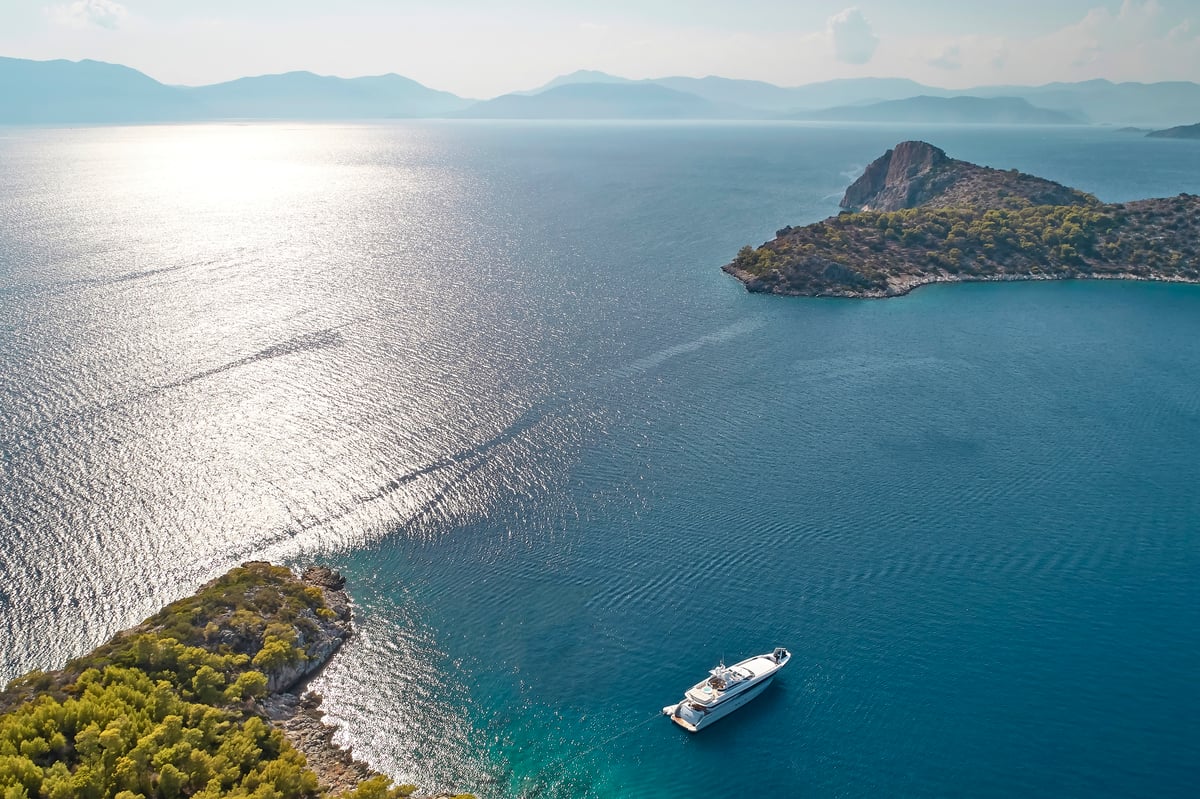
Our industry of leisure and luxury doesn’t immediately bring to mind ecological sustainability. Nevertheless, we can all contribute by leading a more sustainable on-board lifestyle, minimising our environmental impact while at sea and thus protecting what we love the most: the waters upon which we sail.
There is a variety of ways which we, as yachtsmen, can employ to foster sustainability. Occasionally, such practices elude us, yet they are easy to embrace and the returns are significant. A roster of scientists from the Hellenic Centre for Marine Research (HCMR) and the NGO ARCHELON shared precious knowledge and valuable tips with us, lending a practical helping hand in the effort for a more sustainable yachting.
PLASTICS & SYNTHETIC WASTE DISPOSAL
The issue of waste disposal, especially of plastic products, demands immediate attention by the yacht industry and yachtsmen alike. Synthetic waste improperly disposed can harm the ecosystem and pose a severe danger to marine animals.
Dr. Christina Zeri, HCMR Research Associate, describes the problem as follows: “About 200,000 micro-plastics per km2 are found afloat the Greek seas, a number that’s expected to rise. Additionally, islands and remote areas don’t have waste management infrastructure and ship waste contributes to the problem, while plastic items are lightweight and easily fly off when left on deck. Fortunately, she goes on to propose some simple solutions that can easily be applied: when onboard, minimise waste and your plastic footprint. Avoid single-use plastics, food packaging and plastic bags and favour reuse. Install a counter-top water dispenser and refill your personal drinking water bottle”.

Charter Yacht Julie M has implemented such a technology using the WET Water Purifier System on-board which filters the desalination water and makes it drinkable: beautifully clean, as well as carbonated. In this manner, yacht travellers can use refillable water bottles and thus significantly reduce their use of plastic ones.
Other measures include using refillable shampoo and soap bottles, especially on charter yachts, and knowing beforehand which holiday spots have recycling capabilities (e.g. Santorini, Syros, Lipsoi, Alonissos).
They may sound minor, yet such gestures, especially when done collectively, can really make a huge difference towards the protection of our seas.
"You cannot get through a single day without having an impact on the world around you. What you do makes a difference and you have to decide what kind of a difference you want to make."
Jane Goodall
FOOD & ORGANIC WASTE DISPOSAL
Handling food waste in a responsible manner through food digesters, shredders and other sophisticated tech can significantly assist us in the effort to protect our marine surroundings. MARPOL food waste discharge regulations are regularly updated and should be adhered to: they are the Bible of managing waste when at sea. Dr. Christina Zeri cites them, noting, “food waste must be ground to 25mm chunks or smaller before disposal. The ground food waste can be discharged if the ship is three nautical miles or more from land or 12 nautical miles or more from land if you are in a special area”. Dr. Zeri additionally advises on the issue of organic waste: “While it’s non-toxic and degrades in the sea, a rise in navigation creates problems of scale. When quantities increase exponentially, the marine system cannot degrade them. When they are dumped near shores, they create a secondary problem of pollution. In order to help the system perform rapid degradation, MARPOL recommends their dismantling to smaller pieces before disposal.”
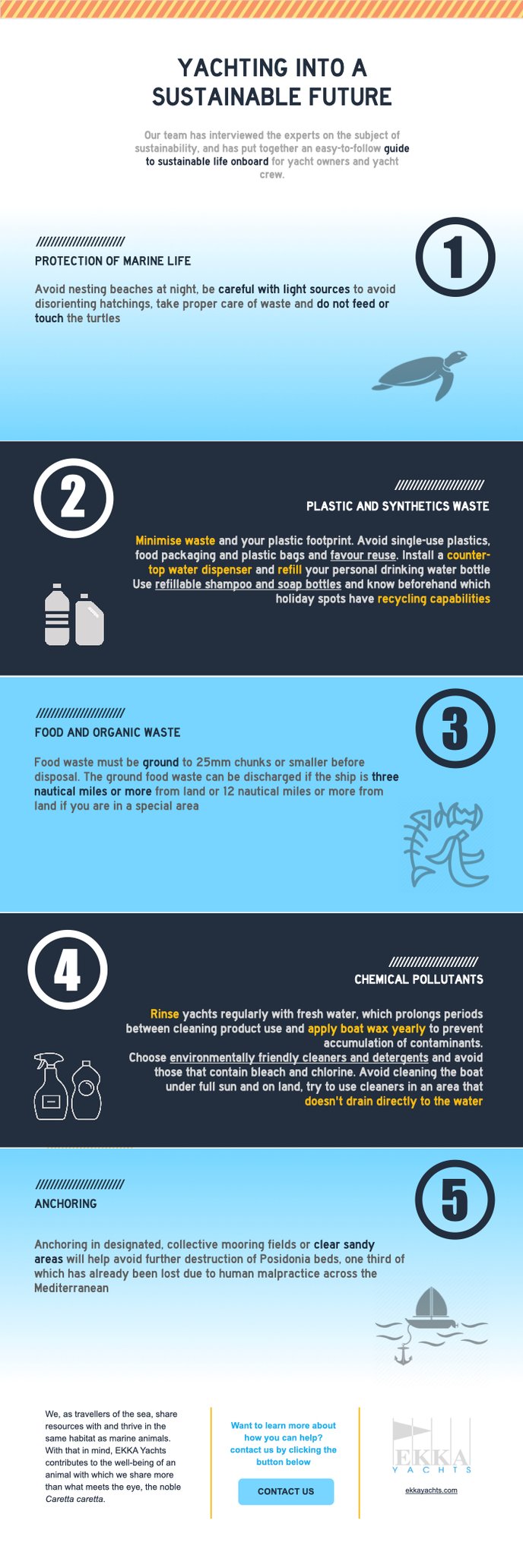
CHEMICAL POLLUTANTS
Consider the small things that make your life beautiful on a yacht. The foods you love, linens that smell wonderful, lovely soaps to remove saltwater. There are easy ways to ensure such amenities and products are ethically sourced, organic, fair-trade certified and reused, and that their manufacture and life cycle are as harmless as possible to the environment. In addition, organic and biodegradable cleaners and detergents take care both of humans and nature.
HCMR Research Scientist Dr. Kostas Parinos notes: “cleaning products that contain chemical compounds such as chlorine, ammonia, phosphates, potassium hydroxide and solvents damage aquatic life or create nutrient imbalances, acting as fertiliser and leading to algal blooms, harmful to aquatic environments”. Dr. Parinos suggests the following: “Rinse yachts regularly with fresh water, which prolongs periods between cleaning product use and apply boat wax yearly to prevent accumulation of contaminants. Choose environmentally friendly cleaners and detergents and avoid those that contain bleach and chlorine. Avoid cleaning the boat under full sun and on land, try to use cleaners in an area that doesn't drain directly to the water”. A similar logic applies to the use of sunscreen, which a good yachtsman never goes without. “Try not to use sunscreen containing harmful chemical ingredients, such as oxybenzon and octinoxate and instead go for the mineral one; even better, use swim clothes with sun protection.” In other words, you protect yourself and, at the same time, take care of our precious marine ecosystems.
“What’s the use of a fine house if you haven’t got a tolerable planet to put it on.”
Henry David Thoreau
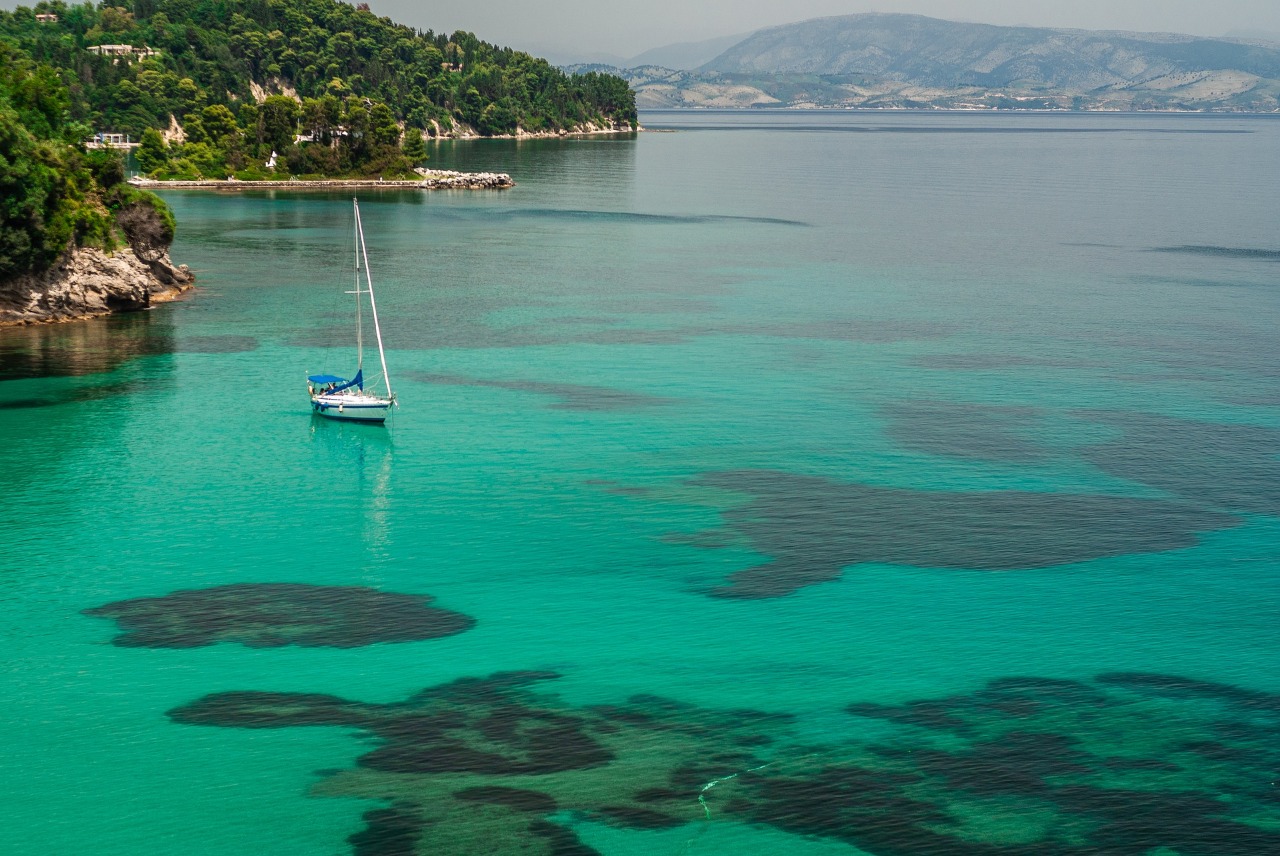
PROTECTION OF MARINE LIFE
Daphne Mavrogiorgos, Director at ARCHELON, the Sea Turtle Protection Society of Greece, shares attention-grabbing information about the effects of yachting on the three species of turtles found here, especially the loggerhead (Caretta caretta), since almost 50% of its nests in the Mediterranean Sea are found on Greek beaches.
"Sea turtles, like yachts, are part of marine traffic and use the same “space”."
Daphne Mavrogiorgos, ARCHELON
This simple, powerful fact is here to remind us that we coexist with everything in the living world, whether at land or at sea; and as yachtsmen, we need to take proper care of the marine home we love so much.
“Marine pollution, especially from plastics, marine traffic and disturbance on nesting beaches are some of the threats affecting sea turtles. They are pelagic migratory species, so they travel hundreds or thousands of kilometers to visit their foraging grounds. When ready for a new reproductive cycle, they travel back to their breeding grounds , mainly sand dune beaches in Zakynthos, west and south Peloponnese, and Crete.” Careless use of the common, marine space may result in collisions between turtles and yachts, especially near breeding grounds, during the nesting season which begins in early May and ends early – mid October. As Ms. Mavrogiorgos advises, as yachtsmen, we should be very respectful to the habitat and breeding animals when we encounter them. “Staying away from nesting beaches at night, being careful with light sources to avoid disorienting hatchings, taking proper care of waste and not feeding or touching the turtles; we should always keep in mind they are wild animals”.
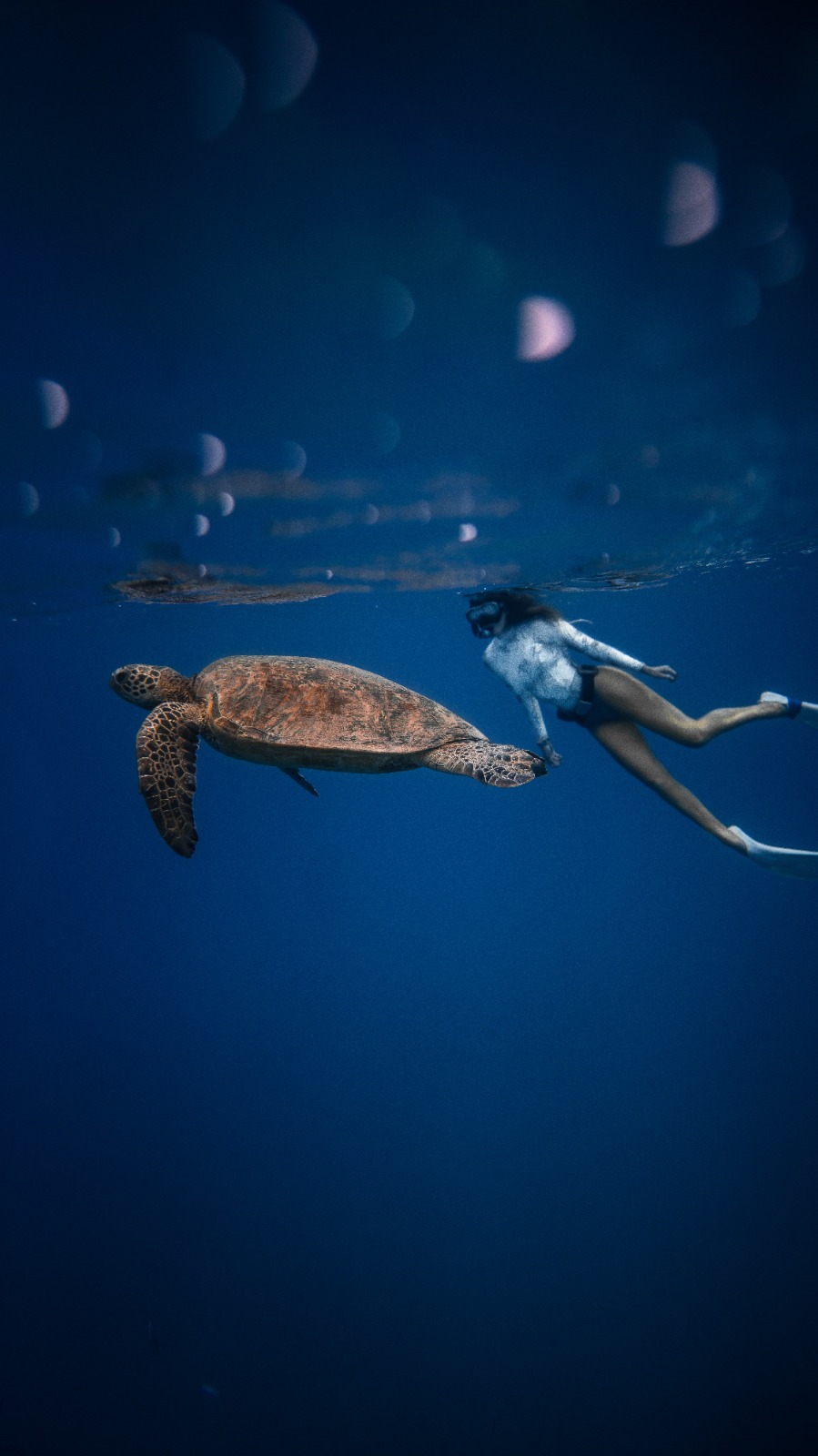
You can follow sea turtles on their journey in the Mediterranean here
ANCHORING
In order to avoid the risk of disrupting the (emblematic to the Mediterranean) seagrass Posidonia oceanica, we need to be careful of where we anchor. We often refer to it as “the lungs of the Mediterranean” and without exaggeration; it’s one of the most important sources of oxygen in coastal areas.
HCMR Research Associate Dr. Maria Salomidi explains: “Anchoring on seagrass beds, chiefly the endemic to the Mediterranean Posidonia oceanica (Neptune’s grass), is an acute threat to this valuable marine ecosystem. Neptune’s grass contributes to carbon storage, nutrient recycling, water purification and coastal protection and is home to thousand other marine and coastal species. Although it’s strictly protected by European legislation, protective measures lack enforcement in Greece. Anchoring in designated, collective mooring fields or clear sandy areas will help avoid further destruction of Posidonia beds, one third of which has already been lost due to human malpractice across the Mediterranean”.
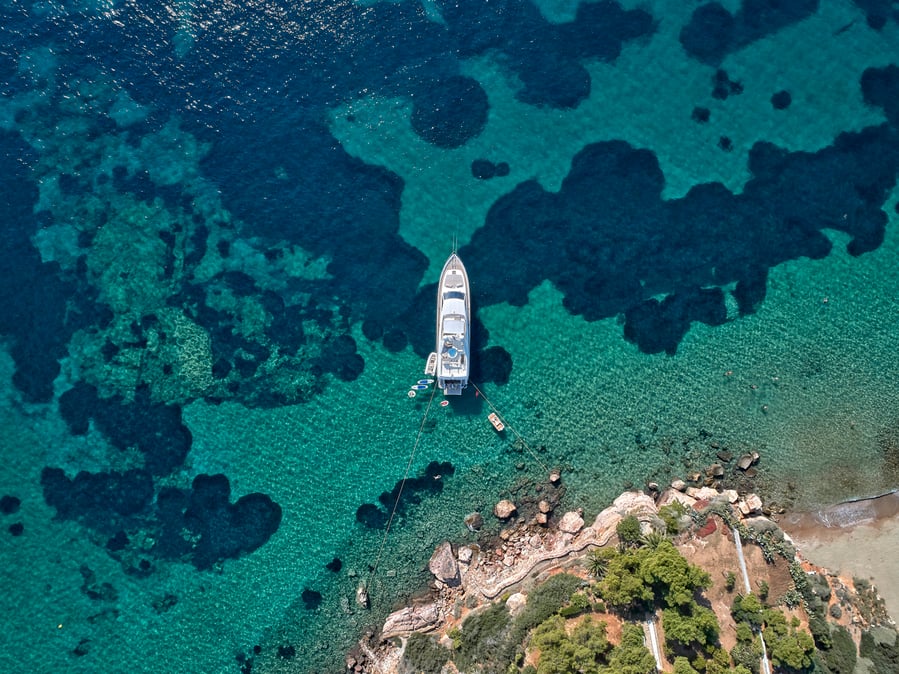
"Anchoring in designated, collective mooring fields or clear sandy areas will help avoid further destruction of Posidonia beds, one third of which has already been lost due to human malpractice across the Mediterranean" advises Dr. Maria Salomidi of HCMR
THE YACHTING INDUSTRY UNITES
Finally, a penchant towards sustainability in yacht design and manufacture has been making strides in the last decade. Yacht designers and specialists are employing cutting-edge environmental technology and innovative practices such as solar panels, electric and hybrid engines, more efficient hulls, alternative wood selections, seafoam exteriors and rechargeable batteries. Companies such as e-Motion Hybrid systems are developing and building hybrid systems for yachts that significantly reduce fuel consumption and CO2 emissions, as well as exhaust and water pollution; a perk is travel becomes a much quieter experience. Environmentally friendly shipyards are becoming part of the green effort. Italian builder Sanlorenzo recently installed solar panels in an area equal to one-and-a-half football fields, as part of a larger scheme towards self-sufficiency in energy. The Ferretti Group new tri-generation plant in Ancona, Italy, reduces electricity use by up to 79% with solar panels, a high-efficiency, gas-fired co-generator with electrical and thermal power and an absorber for the production of cooling water that uses energy from the plant itself.
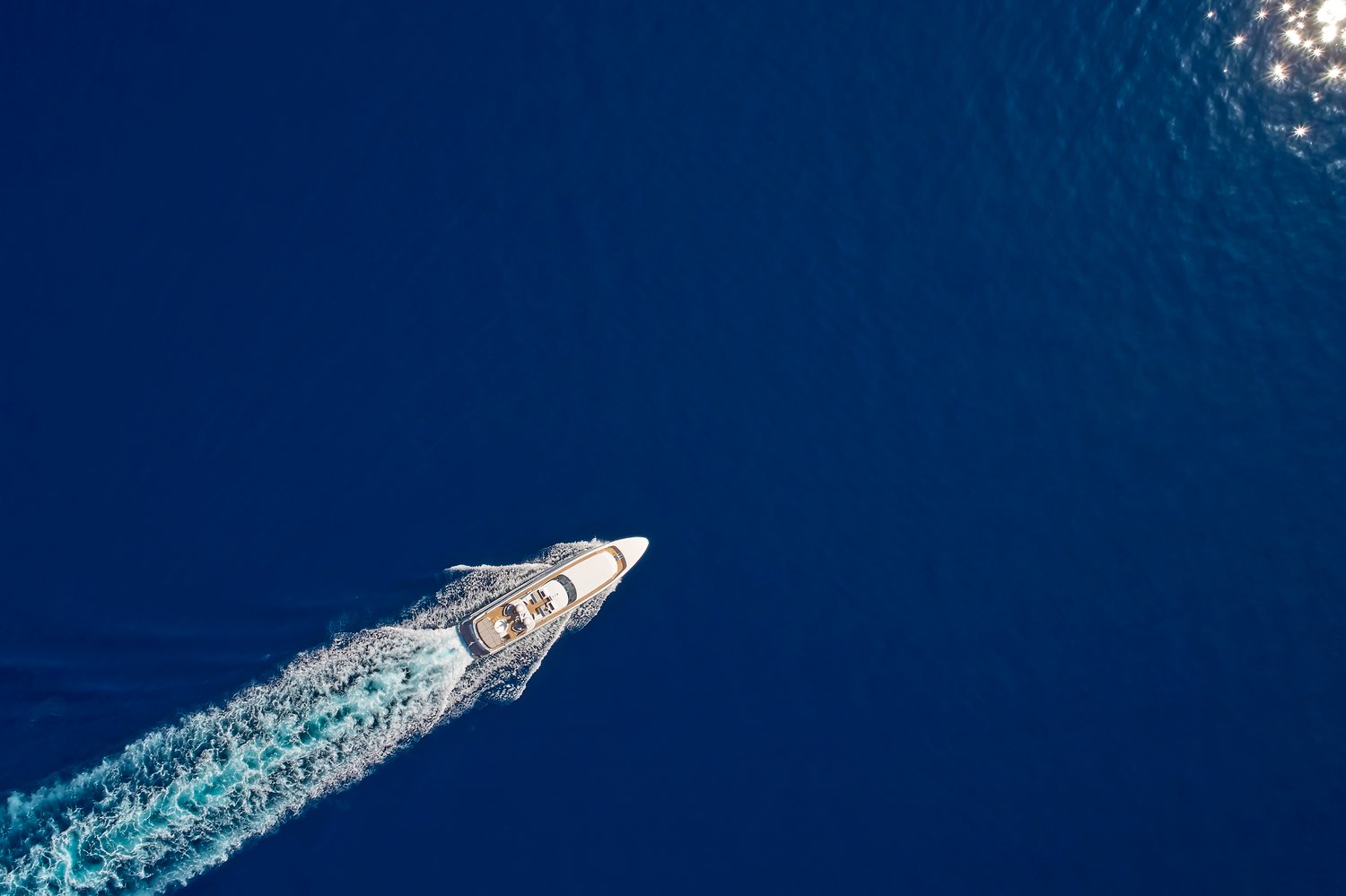
HERE IS WHAT WE ARE DOING...
We, as travellers of the sea, share resources with and thrive in the same habitat as marine animals. With that in mind, EKKA Yachts contributes to the well-being of an animal with which we share more than what meets the eye, the noble Caretta caretta. The loggerhead is our fellow voyager in the Mediterranean: it has a strong, innate urge to travel, as well as an inexhaustible will to return home, albeit for a brief moment before venturing again into the unknown. For a very large population of turtles, the Greek coast is their chosen home; they return year after year, to start off a new life cycle.
This year, EKKA Yachts wants to ensure that this charismatic, endangered animal continues to thrive in a safe habitat. Consequently, we are making a donation to the Sea Turtle Protection Society of Greece, ARCHELON.
HERE IS HOW YOU CAN HELP
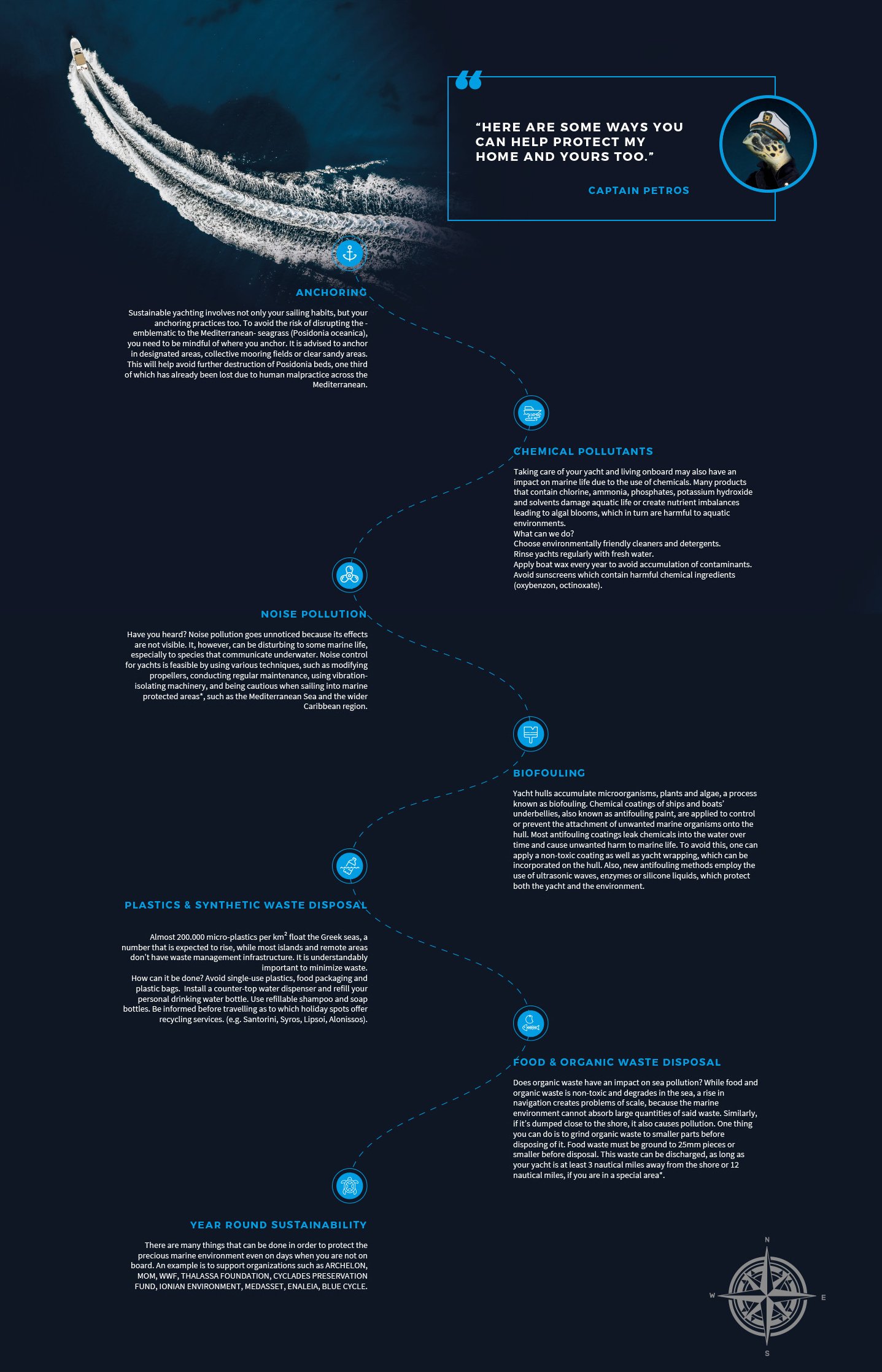
Have a look at our sustainable yachting guide (here).
Organizations & NGOs taking care of our seas:
“The Earth is a fine place and worth fighting for.”
Ernest Hemingway